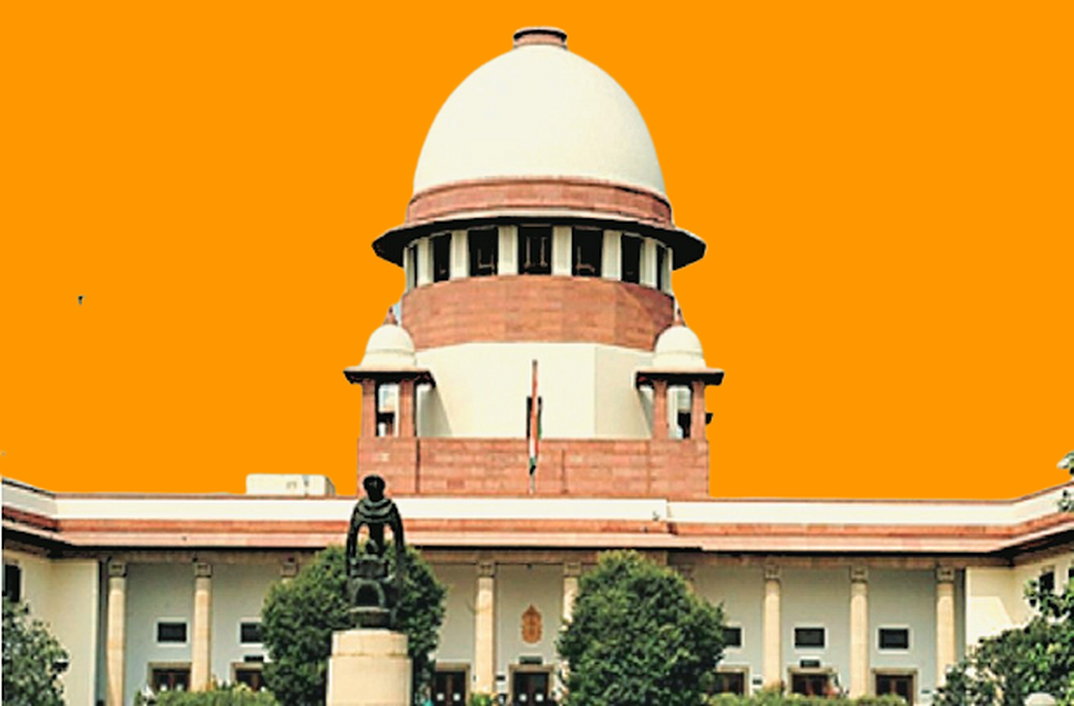Entire criminal proceedings & cognizance of offences under SC/ST Act taken by Magistrate can’t be quashed, simply because such cognizance is not taken directly by Special Court: SC

Read Judgment: Shantaben Bhurabhai Bhuriya vs. Anand Athabhai Chaudhari & Ors.
Pankaj Bajpai
New Delhi, October 29, 2021: While exercising powers u/s 482 of CrPC r/w Article 226 of the Constitution, the Supreme Court has recently quashed the judgment passed by the Gujarat High Court setting aside the entire criminal proceedings for the offences punishable u/s 452, 323, 325, 504(2) and 114 of IPC and u/s 3(1)(x) of the Scheduled Castes and Scheduled Tribes (Prevention of Atrocities) Act, 1989.
A Division Bench of Justice M.R Shah and Justice Aniruddha Bose observed that unless and until those rights which flow from Section 14 of the Atrocities Act are affected, the accused cannot make any grievance and it cannot be said that taking cognizance by the Magistrate for the offences under the Atrocities Act and thereafter to commit the case to the Special Court, he is prejudiced.
The observation came pursuant to an appeal preferred by the original informant/ complainant challenging the judgment passed by Gujarat High Court, whereby it had quashed the FIR as well as order passed by the Magistrate taking cognizance and issuing summons for the IPC offences as well as offences under the Atrocities Act mainly on the ground that in view of the amendment to Section 14 of the Atrocities Act, the Special Court can take cognizance directly and the jurisdiction of the Magistrate can be said to be ousted and looking at the allegation in the FIR, in absence of sanction u/s 197 of CrPC from the State Government, the concerned Court ought not to have taken cognizance of the offences.
The background of the case was that one FIR came to be registered against the husband of Shantaben Bhurabhai Bhuriya (original complainant-appellant) for the offences punishable u/s 323, 353, 362, 186 and 114 of IPC, at the instance of Anand Athabhai Chaudhari (first Respondent-original accused no.1) who was working as Police Sub Inspector alleging inter alia that the original accused persons obstructed the public servants in performance of their duties and was beaten by them under the guise that they were not able to catch the thief and caused injuries to them.
The Judicial Magistrate First Class (JMFC) passed an order for investigation u/s 173(8) of CrPC by observing that summary report was not clear with regard to the involvement of the original third accused and other Police Officers. Thereafter, the Deputy Superintendent of Police, SC/ST Cell, Dahod submitted its report to the Magistrate pointing out that the alleged offences are prima facie appear to have been committed by the accused persons.
Considering the report submitted by the Deputy Superintendent of Police, the Magistrate took cognizance of the alleged offences by issuance of the process u/s 204 of CrPC and summoned the accused. The same was however quashed by the High Court.
After considering the submissions and evidence, the Division Bench of the Apex Court found that Special Court so established or specified in exercise of powers u/s 14 of the Atrocities Act, for the purpose of providing for speedy trial directly take cognizance of the offences under the Atrocities Act.
However, simply because cognizance of the offences under the Atrocities Act is not taken directly by the Special Court, the entire criminal proceedings cannot be said to have been vitiated and cannot be quashed solely on the ground that cognizance has been taken by the Magistrate, added the Division Bench.
“The view taken by the High Court that as in the present case the Magistrate has taken cognizance for the offences under the Atrocities Act and thereafter the case is committed to the Special Court and therefore, entire criminal proceedings are vitiated, cannot be accepted”, observed the Apex Court.
The Apex Court also made it clear that if entire criminal proceedings are quashed on such ground of non-commitment of case by Special Court, it will give a premium to an accused who is alleged to have committed the offence under the Atrocities Act.
Sign up for our weekly newsletter to stay up to date on our product, events featured blog, special offer and all of the exciting things that take place here at Legitquest.




Add a Comment